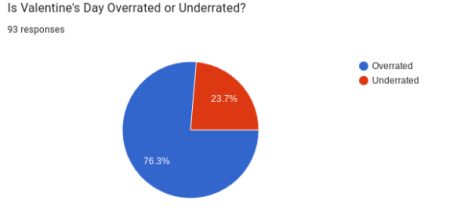TikTok Isn’t Just Another App
December 8, 2020
As a common ground for any and all interests, hobbies and ideas, especially for teenagers, the popular app TikTok gained national headline attention when it raised some concerns with the U.S government regarding national security and the security of users’ personal information.
In an executive order in August 2020, President Donald Trump expressed concern over China, where the parent company was located, possessing citizen information.
“The United States must take aggressive action against the owners of TikTok to protect our national security,” he stated.
But in today’s technology-driven society, our information is easily accessible to anyone capable of understanding how to get it. By being born and having a number assigned to you in the form of a social security number, your information is already connected and accessible to authorities.
We should all understand that by being this far into a technology-dependent world, privacy becomes harder to maintain. Users have the ability to decide for themselves whether or not they’re comfortable with corporations having data on them. There is no need for any broad governmental decision that will affect those who don’t want to be affected by the government’s decision.
Additionally, according to some experts, worries over other nations possessing American citizens’ data seem to be unfounded in this particular TikTok case.
Kristen Martin, professor of technology ethics at the University of Notre Dame was interviewed for an Aug. 6 NPR article titled “Trump Signs Executive Order That Will Effectively Ban Use Of TikTok In the U.S.” by Bobby Allyn, where she stated the following: “TikTok never had U.S. user data on Chinese soil, so this deal is moving the data from one U.S. company to another? I don’t see how that materially changes anything.”
While the concern of information privacy is valid, I believe that argument could have led to unnecessarily censoring a platform young, passionate and educated people are using to share ideas about a wide variety of topics and issues while also connecting with others.
“I’ve met some cool people through TikTok that I probably never would have even talked to otherwise,” sophomore Will Gonzalez said in an email.
It can be easy to forget there are other high school students all over the country with similar experiences to our corner of the world, but with TikTok, sharing these common experiences with others has become easier than ever before.
While TikTok offers a chance to explore niche interests one may never even have heard of, it also provides an opportunity for under-represented groups of people to get together with other like-minded people and build off of each other’s findings.
For example, a perfectly abled seeing person will never know what it’s like to be legally blind. Through TikTok, though, anyone can learn what it’s like to be in someone else’s shoes.
Mackenzie Strong, an MHS alumnae from the Class of 2020, discussed how she uses TikTok to share her experiences of being a person with albinism, an inherited genetic condition that reduces the amount of melanin pigment formed in the skin, hair and/or eyes.
“My content is educational about albinism, legal blindness, comedic videos about my condition, swim videos, and some just random funny videos,” said Strong, whose account has 276.4 thousand followers.
I’ve personally gained a lot of knowledge I don’t think I would ever have learned if it weren’t for TikTok, showing that content from a variety of sources and viewpoints helps create a diversified learning experience.
Therefore, when a government feels as though it needs to regulate a form of communication, it is important to be cautious and question why it’s being done. While we all see issues from different points of view, TikTok provides a space to interact with others from all over the world with those varying viewpoints.
